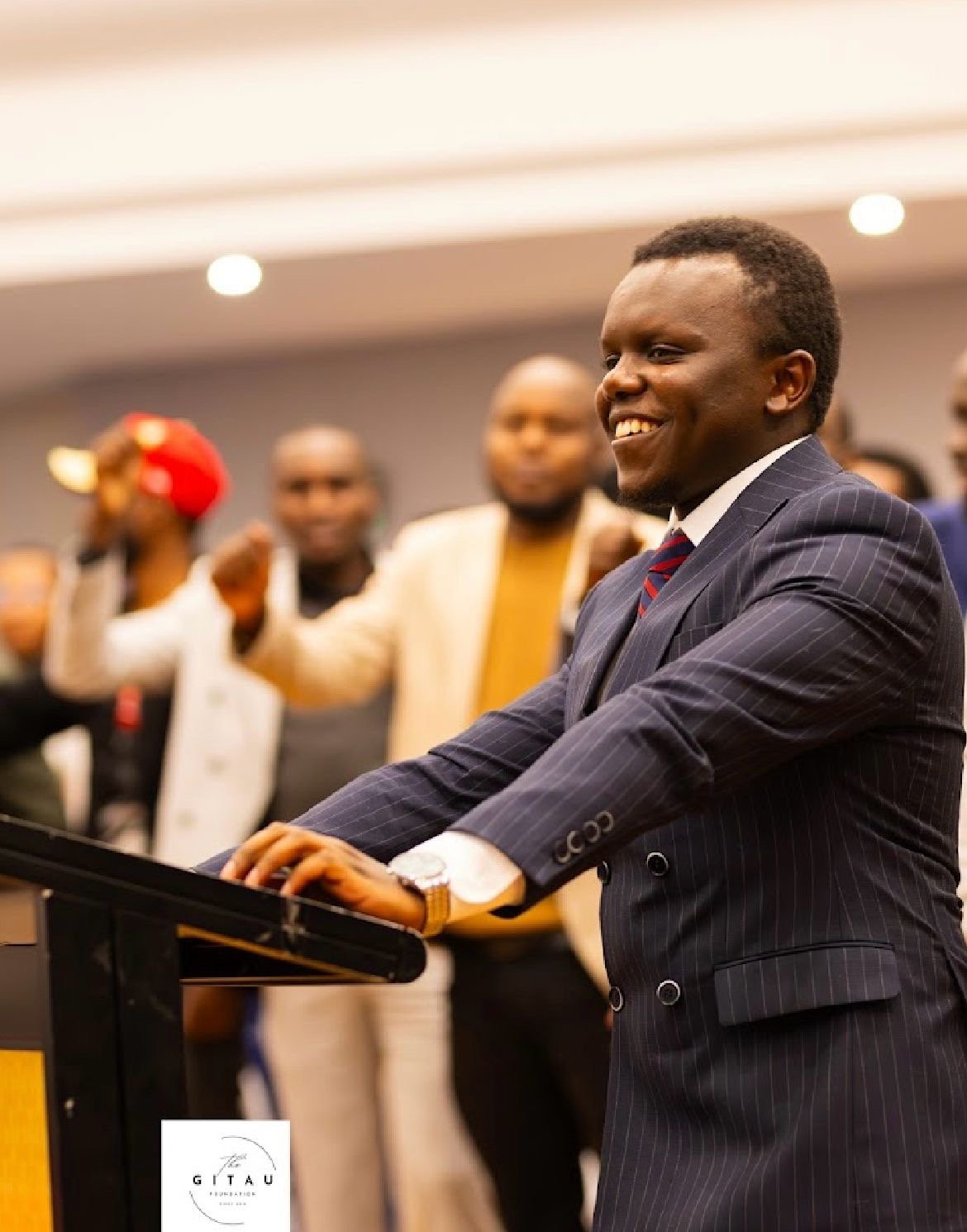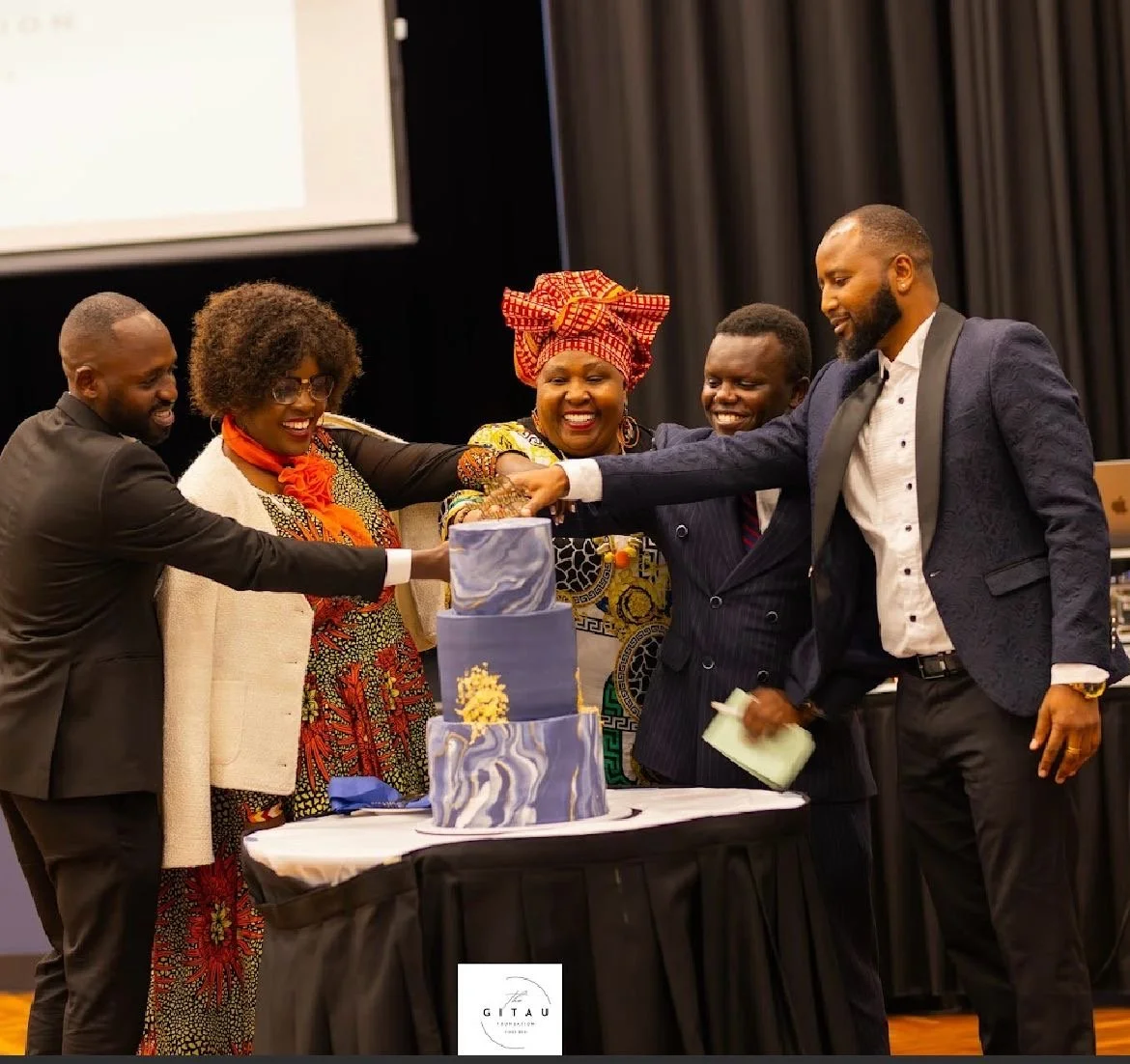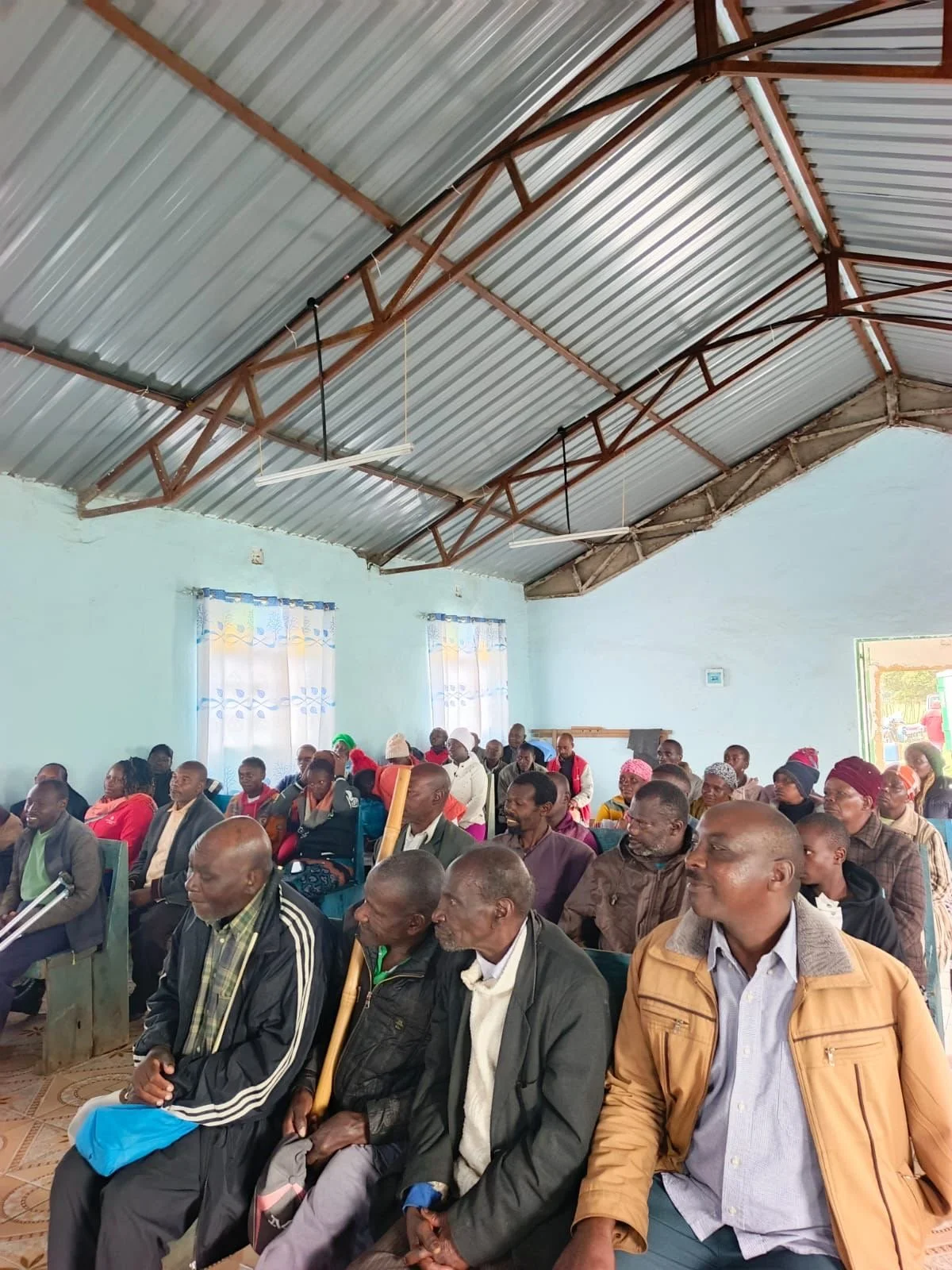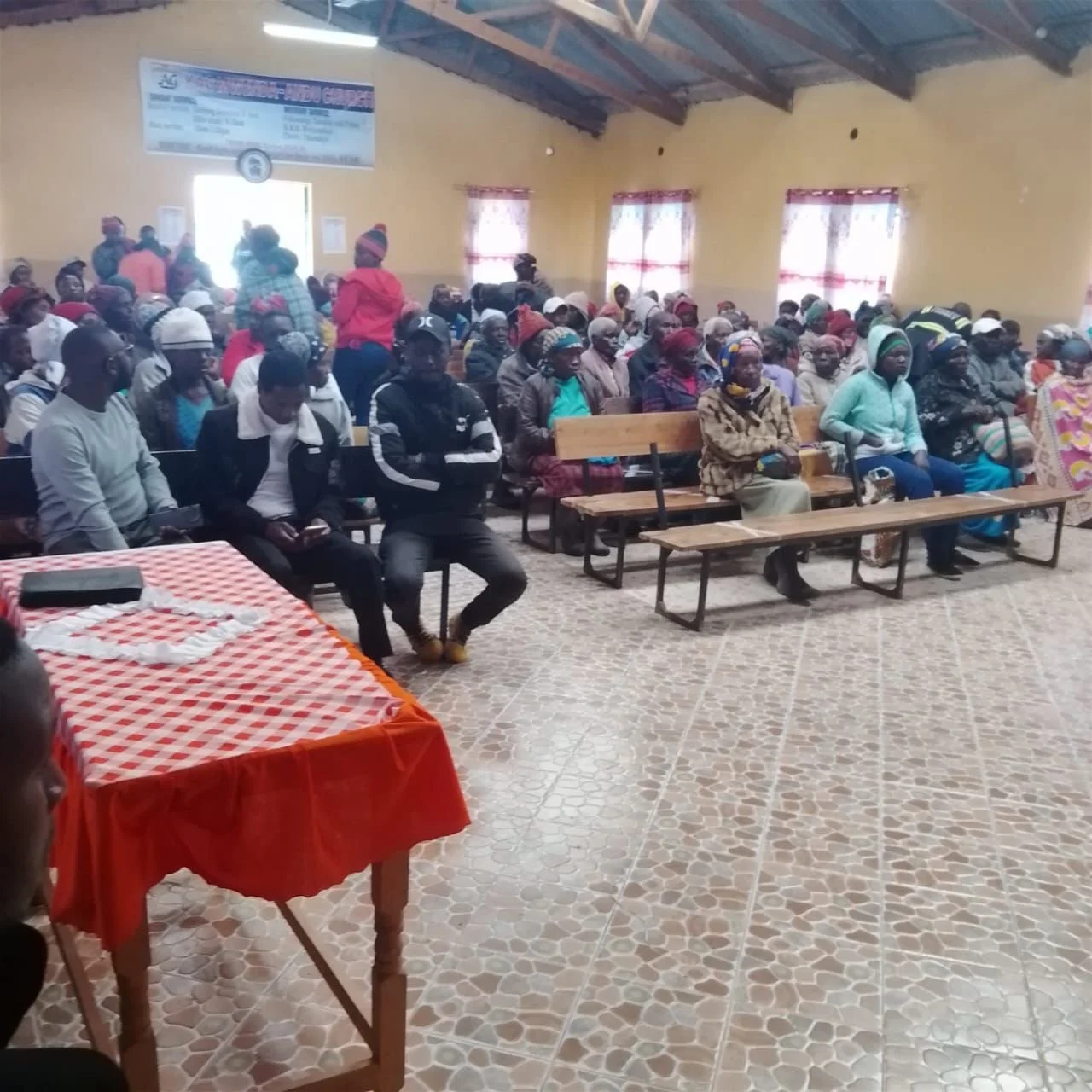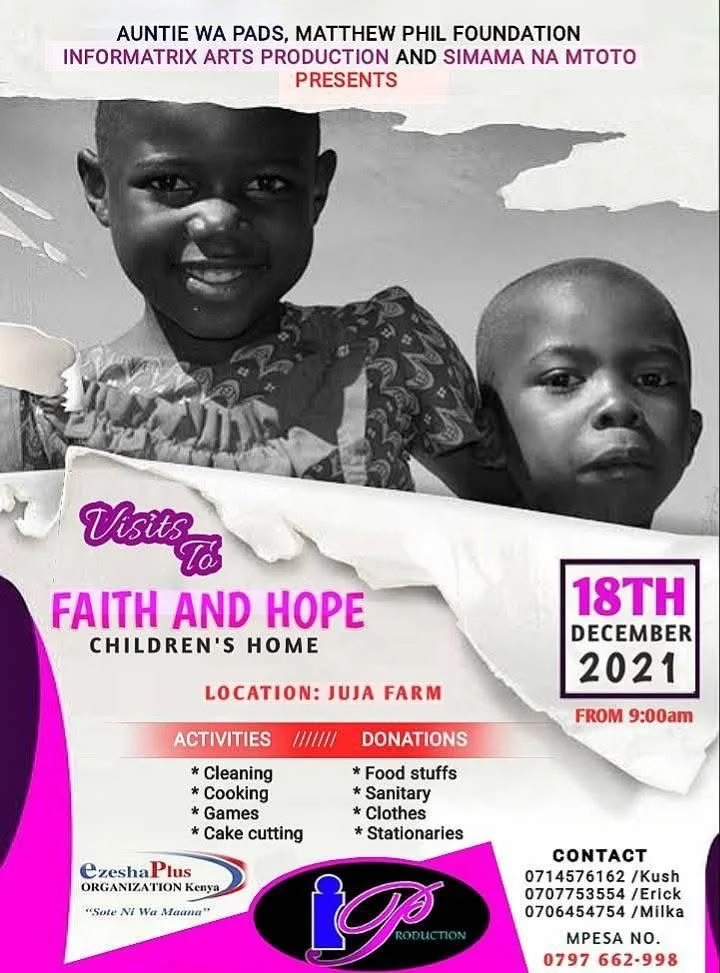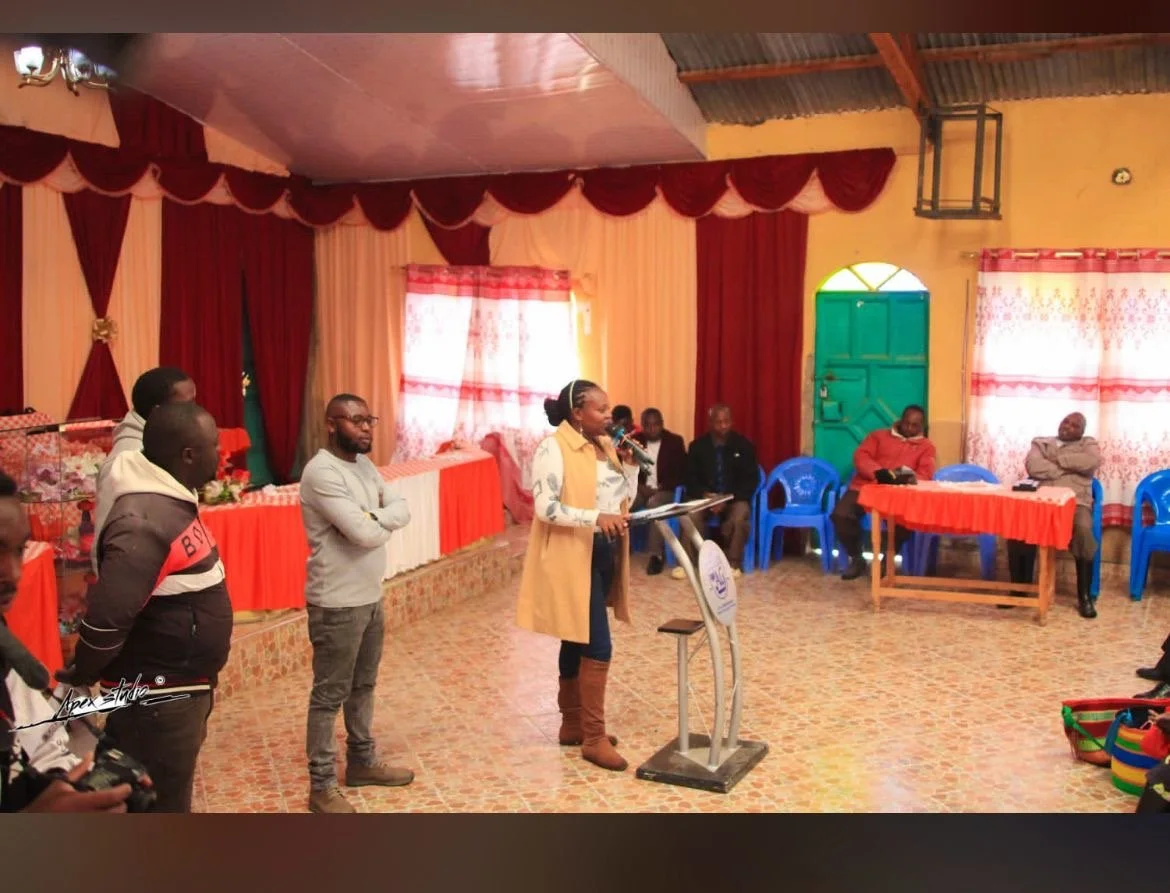The Gitau Foundation in simple words
On June 20th, I marched to an audience that, in all forms, was quite expectant of a speech. The day had finally arrived, and the long wait was over. The room was filled with optimism and enthusiasm, and I approached the platform without a written speech. Efforts to draft one had proved futile, and the sketch I had prepared two days earlier seemed all too formal and disconnected. I felt this was not the time to go into lengthy words about what the Gitau Foundation was.
When the moment arrived, I stepped onto the stage, said a little prayer, and spoke to the audience. It was a moment to look back at what was once a dream, once an idea that had fused into reality. The Gitau Foundation story is not a corporate story; it is a path forged by raw desire to have an actual, sustainable impact on the community. This can be interpreted in many ways, and it is my hope that in this writing I will draw a clearer picture of what the Gitau Foundation is.
In the last week, I have been deeply invested in the autobiography of Phil Knight, the man behind Nike. It is a story of pure passion, commitment, and a hope to make things, in James Baldwin’s words, “a little better.” It was the journey of a young 24-year-old, forged amidst many setbacks and countless reasons to step back from, in Robert Frost’s terms, “the road less taken.” In almost the same fashion, the story of the Gitau Foundation unfolds.
The Gitau Foundation began many years ago. It started as an idea in a hotel just a few miles from Naivasha, Kenya. Gathered with two of my friends, we shared the vision of contributing towards visiting a children’s home, which we would choose at a later stage. We debated at length over the priorities of the proposed event, what the prerequisites were, and the roles for each of us. We all went home with a promissory note that we would meet again and finalise the details. Like many ideas, this one never materialised. I would later take it as a personal initiative to live out the dream we had shared that day.
The initial steps included partnering with other organisations. I am forever indebted to Milka Guchu, who ran a charity organisation in Gatundu, Kiambu County. Though we had never met in person, we had spoken over the phone and shared the same vision. Her organisation was focused on visiting different schools, offering sanitary pads and shoes. She organised several drives, and we worked together to realise the initiatives as they were back then. For formality purposes, I operated under what was then defined as the M.Phil Foundation, a name that had been chosen without much consideration.
Through the M.Phil Foundation, I focused my attention on Nyandarua County, where one of my former classmates ran the Baraka Charity Group. Unlike Milka’s organisation, this was a coming together of many youths who visited the elderly and the desperate, each contributing what little they had. Working with foundations like the M.Phil Foundation, they had a remarkable impact and a zeal that is uncommon in modern times. However, the Baraka Charity Group was a seasonal initiative, and when the demands of life caught up with its leaders, the group faded into oblivion, yet another great initiative that never lived up to its full potential.
Having worked in partnership, and without doubt having lost a percentage of finances in dubious projects, it became clear that it was time to rethink the whole idea. I officially dropped the M.Phil Foundation name, as it was no longer needed, and any help provided was done more on an individual basis than through a formal structure. This remained the case from late 2021 to late 2024.
By late 2024, the demand for community support in various forms had reached new heights. Whereas before I dealt with an average of one case per month, this had now grown to sometimes as many as four cases per day. While I had previously responded to cases individually, often through a relative or contact on the ground, it was now clear that I would need a dedicated team in Kenya, especially considering I am still abroad and most of our projects and beneficiaries are based there.
It was the Christmas Project of 2024 that brought public attention to what was now officially defined as the Gitau Foundation. Many people woke up to Christmas packages on Christmas Day from a foundation they had never heard of, yet in every sense deserving of the support they received. It then became theteam’s responsibility to explain that the Gitau Foundation was an initiative whose core mission was to positively influence the community by offering strategic help and initiating projects geared towards community development.
One might be tempted to say that my classes on community development had transitioned into an actual manifestation, from what was taught in the halls of Torrens University to practical work in Nyandarua County. Since then, the Gitau Foundation has been involved in one of the most successful football tournaments that brought youth together, charity drives during the Easter season, clearing hospital bills, purchasing medication for the disadvantaged, paying school fees, offering mentorship, and many other initiatives.
Has it been all smooth?
One of the challenges the foundation has encountered is the difficulty of separating politics from its mission. One of our projects, a youth empowerment programme, was cancelled just two weeks before the event, after a long marketing campaign and numerous arrangements. Political actors believed the programme had a political agenda and lobbied the hosting church to cancel it. It was devastating, as the church did not give us an opportunity to explain our side of the story.
On numerous occasions, when the foundation has been mentioned, some have still viewed it as a political tool. I wish to make it absolutely clear that the Gitau Foundation has no political agenda. It is established with strict goals focused solely on community development and has never engaged in any political-related activities in the past, nor does it intend to in the future.
Do we plan to cover other counties?
It is true there has been a strong focus on Nyandarua County. However, this does not mean we are not planning to go beyond County No. 18. As I mentioned during the launch, our objective in the next three years is to have a presence in at least 75% of Kenya’s counties. Some of the programmes we are working on will directly impact many Kenyans far beyond Nyandarua County.
In an ambitious vision, it is our hope that one day we will have an impact across the African continent.
Any priorities?
We have made it clear that the Gitau Foundation cannot respond to every issue within the community. Although in Q1 we addressed multiple issues that ranged widely, this cannot be the approach for the future. Doing so risks minimal impact and burnout.
As mentioned during the launch, our focus is on education, youth, and persons with disabilities in the community. We have programmes designed for these three priority areas, and we are actively seeking funding to target these groups. For sincere and sustainable growth, we must focus on a few key issues. In the coming weeks, we will be discussing our detailed plan on education.
Any presence in Australia?
This has been a recurring question in many forums I have attended, including at the launch. Without going into all the details at the moment, we are working on a few ideas that will have a direct impact, particularly on Kenyans in Australia. This marks a shift from the perception that Australia will only contribute financially. We will be launching programmes in Australia late this quarter or early next quarter, with negotiations and planning already underway. Naturally, proper registration and legal requirements will also be completed.
A final word
The Gitau Foundation is a profound reminder of the importance of executing ideas, no matter how inadequate we might sometimes feel. The world is filled with people who have ideas but never act on them, those who, at every turn, listen to every voice that finds fault in the possibility of their dreams. Yet the world belongs to those who are willing to brave the storm and execute, those who do not shy away from the endless criticism of people who have never tried anything themselves.
The Gitau Foundation will not go down in history as an idea that shone brightly only to fade from lack of structure, execution, or planning. Every single day, we are working to make it better. John Doerr’s book Measure What Matters and its Objectives and Key Results (OKR) system has already proved valuable to our work. Like many other ideas still taking shape, the Gitau Foundation will make mistakes, but it is from those mistakes that we will build our story, throwing ourselves into the work and doing what truly counts.
I wish I could say it is all figured out, but that would be untrue. While we have our priorities set, transforming them into reality will demand far more than one might easily anticipate.
As I conclude, expect to hear more from us, expect to see us, and when we call upon your support, I ask that you respond with kindness. The Gitau Foundation story is just beginning. Join the journey and let us work for a better future.
